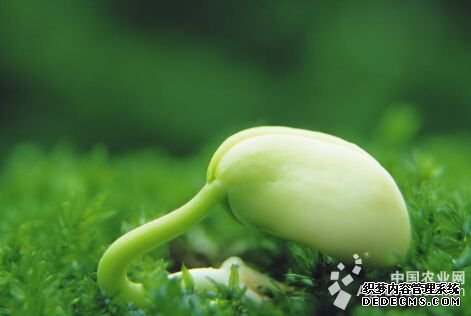The department should be responsible for the "extinction" of false species (figure)

A few days ago, the Ministry of Agriculture released the results of the seed market inspection, giving a hint of "do not buy these seeds for spring ploughing and preparation." 44 kinds of seeds, including rice and corn, were found to be unqualified. Production and management units are distributed in 20 provinces and cities, including Tianjin, Hunan and Guangdong. At the beginning of last year, the Ministry of Agriculture announced 39 cases of fake and shoddy seeds, pushing seeds without trial, and operating seeds without a license in two batches, and conducted a special inspection on seed production bases in the middle of the year. At the end of the year, all seed-related cases in 27 bases were closed.
The notification of seed-related cases and inspection results shows that the Ministry of Agriculture attaches great importance to seed quality, which is very necessary. Farmers have no matter how good arable land, no matter how good weather, no matter how good technology, if there is something wrong with the seeds, then all the efforts are zero after the decimal point. Statistics show that seeds account for less than 1% of the production cost, but once the seeds are fake, the other 99% of the investment will go down the drain. In recent years, the phenomenon of no harvest caused by substandard seeds has been heard from time to time. A few years ago, farmers in Yueqing encountered fake seeds, and the affected area reached more than 1300 mu. Of course, growers received compensation, but "10% to 9% was insufficient." in the end, farmers suffered losses.
By checking and announcing what seeds cannot be bought, let farmers know at a glance, the risk can be effectively prevented and controlled. But since China is so big, is the announcement of seeds that "cannot be bought" the result of a spot check or the conclusion of the census? Does not buying these seeds mean that all other seeds are safe? Can farmers rest easy by avoiding these 44 kinds of seeds? It is estimated that this commitment will not be easily opened by any department, which means that the fake seed incident will not be "extinct" as a result of an announcement by the Ministry of Agriculture.
The phenomenon of counterfeiting has been banned repeatedly in our country, and there are fake goods. Relevant departments and experts usually give the knowledge of identification and tell the people what can not be eaten and bought, but it is difficult to tell clearly what can be used and eaten at ease. As a result, some fakes are evaded, while other fakes are still popular. In fact, such endless incidents of counterfeit goods are closely related to improper control at the source, which is not prevented in advance, but depends on a piecemeal mode of law enforcement. It is almost impossible to make the fakes disappear and ensure that the interests of consumers are not infringed upon.
The same is true when it comes to the question of seeds. But the seed also has its particularity, that is, the discrimination period is relatively long, and it usually has to wait until it does not blossom or bear fruit before it can be judged, but at this time "the coffin has reached the Qingming Bridge." It is almost as difficult for the average person to identify in advance as food mixed with chemical ingredients. In short, it is necessary for the authorities concerned to determine the blacklist of "cannot be bought", but what is more important is to give a "red list" according to different regional characteristics and planting structure-- what to push, what to encourage, and what to prevent. Such a "red and black list" can be regarded as a real reassurance for farmers. But this kind of release, the relevant departments need to have the courage and self-confidence, and this is the real test of the sense of responsibility.
- Prev

Lingcheng, Dezhou: handheld traceability of vegetable production
[introduction to China vegetable Network] on January 12, at the five plum vegetable planting base in Lingcheng District, staff from the key Laboratory of Intelligent Agriculture of Shandong Agricultural University are upgrading the vegetable planting traceability information system. The original abstract text message
- Next

Experiment on vegetable supply-side Reform in Sanyuanzhu Village, Shandong Province
Agricultural supply-side structural reform has become a hot word recently, but it seems difficult to connect with a small village that produces cucumbers. However, in recent days, the reporter went to Sanyuanzhu Village in Shandong Province, the birthplace of China's winter-warm vegetable greenhouse, and accidentally found that it had already been
Related
- A one-day flower show brings 130 million yuan in orders! Nanhai, this Phalaenopsis exhibition is amazing
- What do the flower language and meaning of Lutheran tree mean? Precautions for planting Lutheran tree
- Encounter Chaoshan Kongfu tea, not without this cup of Phoenix single clump
- The durian market in Vietnam and Thailand is flooded. The price of imported durian has plummeted by 30-40% in a month.
- Shanghai solved the problem of local vegetable supply by planting 80,000 mu of green leafy vegetables.
- Wageningen University has become the best agricultural university in the world for the seventh time in a row.
- The strongest export season of South African grapes is full of challenges, with exports to Russia falling sharply by 21%.
- Sri Lanka is on the verge of bankruptcy, "Tea for debt" Organic Agriculture Revolution aggravates the Food crisis?
- Turning waste into earthworm manure and worm manure into organic fertilizer-A new choice for auxiliary farming
- Organic rice growers shoulder the responsibility of nurturing agricultural talents! Yinchuan Sustainable Farm with Organic Life Camp

